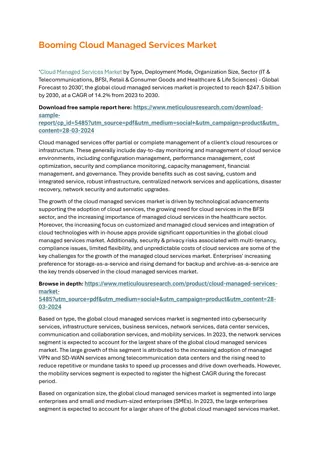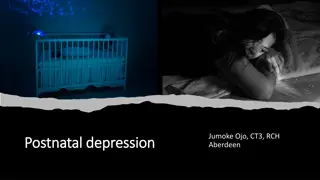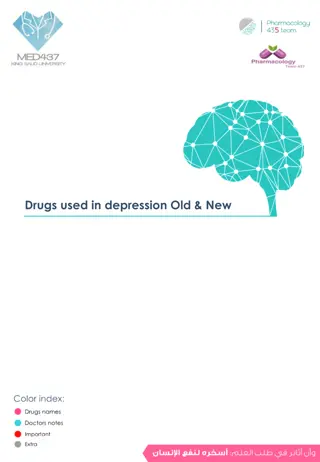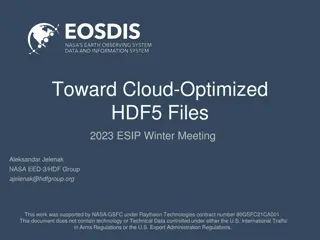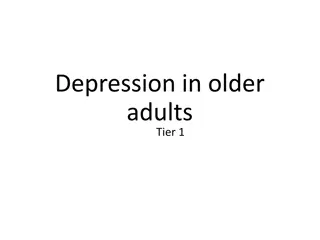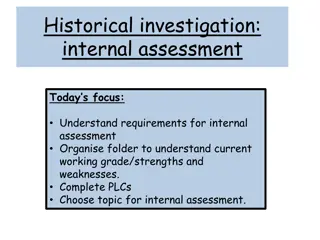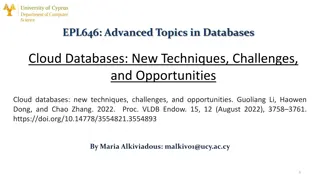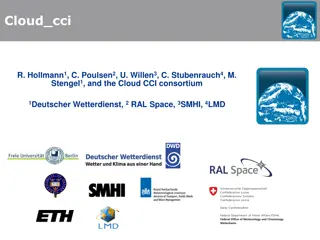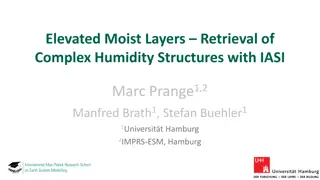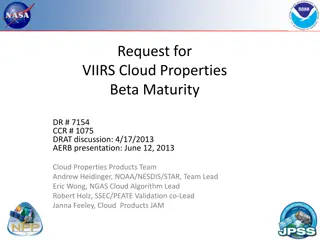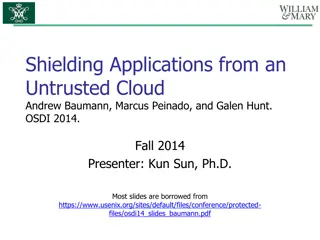PREDICT: Pre-Depression Investigation of Cloud Systems in the Tropics
PREDICT is an NSF project focusing on investigating tropical cloud systems to better understand tropical cyclone formation. It builds on previous field campaigns and modeling activities, aiming to test hypotheses, explore different genesis pathways, and advance our understanding of the processes involved. The project includes specific science objectives, observations, and tools to study tropical cyclone genesis.
Download Presentation

Please find below an Image/Link to download the presentation.
The content on the website is provided AS IS for your information and personal use only. It may not be sold, licensed, or shared on other websites without obtaining consent from the author. Download presentation by click this link. If you encounter any issues during the download, it is possible that the publisher has removed the file from their server.
E N D
Presentation Transcript
Pre-Depression Investigation of Cloud-systems in the Tropics (PREDICT): An NSF perspective Michael C. Morgan National Science Foundation
Outline Pre-PREDICT Why PREDICT? PREDICT: Science Objectives PREDICT: Measurement Objectives PREDICT Observations Future NSF opportunities
Pre-PREDICT Tropical Experiment in Mexico (TEXMEX), 1991 (genesis) Hurricane Rainband and Intensity Change Experiment (RAINEX), 2005 (intensity)
Why PREDICT? Despite analyses from prior field campaigns and recent modeling activities, the processes associated with tropical cyclogenesis remain unresolved. Prior field campaigns (e.g. FASTEX, T-PARC) had multiple targets . . . Where do you go? Follow the wave? Which part?? PREDICT offered a practical, focused means to target observations to challenge the hypotheses put forward by Dunkerton et. al (2009) PREDICT offered a means to study other potential genesis pathways In addition, the opportunity existed to work cooperatively with two other field activities (IFEX and GRIP)
2007 Felix TRMM and ground-relative 850 hPa streamlines Wang et al. (2010)
2007 Felix TRMM and translated 850 hPa streamlines
PREDICT: Science Objectives Testing of the DMW marsupial hypotheses Investigating other genesis pathways: Are the mesoscale processes relatively universal among the different synoptic-scale precursors? Understanding the dynamics of upper-tropospheric circulation on development of developing TCs and relationship to critical layer convective dynamics. Assessing the vorticity and thermodynamic budget of TEWs Characterizing TC genesis using special remotely sensed observations and products Advancing our understanding of the processes and predictability associated with TC genesis via ensembles Creatiing a dataset from satellite-based sensors that would complement the airborne observations from PREDICT IOPs that will be compared and integrated with aircraft observations. Using real-time support from modeling efforts and satellite-based analyses Conducting ensemble-based data assimilation and assessment of predictability and sensitivity of genesis forecasts to observations
PREDICT: Observations Maximum range: 6500 nm Maximum cruise altitude: 51,000 ft (15.5km) Anticipated 200 research hours Anticipated use of 500 GPS dropsondes Other instruments Microwave temperature profiler Differential GPS Small ice detector counterflow virtual impactor 2-D imaging probes Tunable Diode Laser hygrometer The NSF/NCAR G- V research aircraft on St. Croix, U.S. Virgin Islands. Photo credit: NPS
PREDICT: Measurement objectives Mapping the structure of tropical waves and identifying the sweet spots , emphasizing mesoscale variations of convection, humidity and rotational features. Determine horizontal and vertical characteristics of the critical layer. Observing the vertical structure of the temperature, pressure-gradient, and wind fields in candidate pouch regions Measuring the water vapor field at several altitudes to assess column humidity and mesoscale variations of water vapor near convective features Examining the aerosol and thermodynamic properties of Saharan Air Layers. In particular, measuring concentrations and radiative forcing within regions of dust. Conducting hierarchies of numerical simulations of genesis, tested with field observations, to further test genesis hypotheses, and deduce key limiting factors in predicting genesis, including observations needed to improve genesis prediction and limitations of model physical processes
Future NSF opportunities The President s request for the FY2012 Budget for the AGS Division calls for a 10.2% increase in support over the FY2010 enacted level. Essentially all of this funding is targeted to three initiatives: SEES: Science, Engineering and Education for Sustainability (SRNs and SEPs) CIF21: Cyberinfrastructure Framework for the 21st Century Science and Engineering CaMRA: Creating a more Disaster Resilient America




